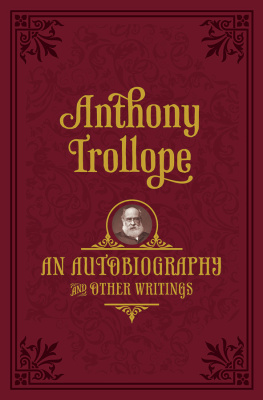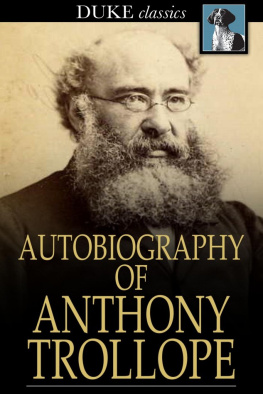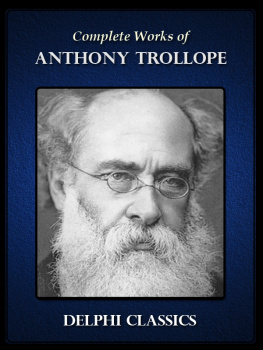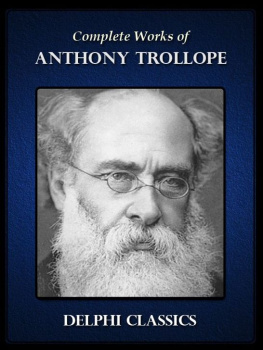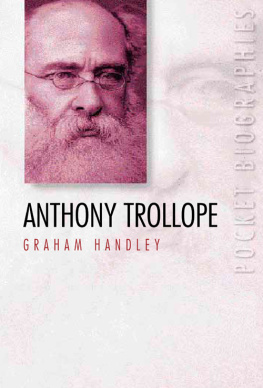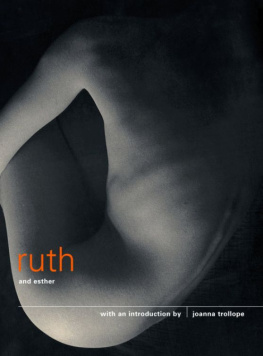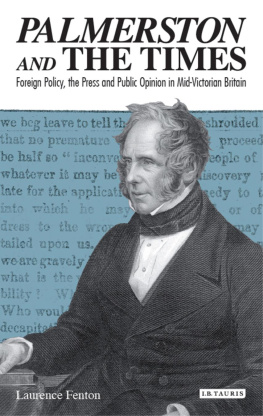CHAPTER I.
INTRODUCTION.
I N looking for material on which to base this short memoir of Lord Palmerston I have of course taken, as my guide to his general life, the biography of Mr. Evelyn Ashley. I have also referred to the unfinished volumes by Lord Dalling, which Mr. Ashley adopted as far as they went, and by his later edition has rendered unnecessary to the general reader. Beyond this I have had recourse to the Edinburgh, the Quarterly, the Times newspaper, and various periodicals of the period; and I have read many of his speeches and others. In dealing with the Crimean War I have had recourse to Mr. Kinglakes work; and in various portions of my little book I have referred to other authors, whom it may perhaps be unnecessary that I should name here. Having lived through a great portion of Lord Palmerstons career, I have trusted in some things to my recollection, when I have been able to confirm my memory. But I must add to this short list The Life of the Prince Consort, by Sir Theodore Martin, in which the name of Lord Palmerston has been brought under much discussion.
Sir Theodore Martin, in that work, has performed a most difficult task with a devotion and loyalty beyond praise. There was a special merit in selecting a man who has united so true a spirit with a patience so exemplary and literary merit of such high character. And the subject of his eulogy was certainly beyond all praise. To have found genius and conscience and industry, with assured moral convictions and a tender loving heart, to fill such a place as that occupied by the Prince Consort, has been the good fortune of England. Let men consider what might have been the condition of the country with a Consort less gifted in any of these details than was the Prince. But with the verdict of the Prince, declared in regard to Lord Palmerston as Foreign Minister, I am compelled to differ. It is nothing that I and another do not agree with it, but I think that I shall be able to show that England has disagreed with his Royal Highness, and that England has been right.
It is better perhaps to say what must be said on this subject here, in the first pages. It has to be said, or such a memoir as this would lack every element of completeness. No man could thoughtfully undertake such a task without feeling that he would have to express an opinion that the Prince was right or wrong. The Prince has been so plain-spoken, and Sir Theodore Martin has been bound to publish what the Prince has said in language so resonant, that no one now dealing with Lord Palmerstons life can pass it over in silence.
That the Prince was conscientious, high-minded, modest in listening to the advice of others, bold in declaring his opinion when he had formed it, and patriotic in declaring it when formed, no thinking man can doubt. Fault was found with him at first, by men who did not think; but that has passed by. It did not now need his Life to make his memory sweet to all Englishmen. He came among us and gave us his best, and lived as though we were his own. In pursuance of a theory of government which it was natural that he should adopt, he found fault with the Minister who, at that time, had especially dealt between us and other nations for a period of nearly twenty years. In this he followed the political teaching which he had received from Baron Stockmar, a German possessed of great abilities and gifted with a clear, conscientious mind. He had been left to the Prince as a legacy by his uncle, King Leopold. It can hardly be necessary to speak more in detail of Baron Stockmar after the life of the Prince Consort by Sir Theodore Martin. Lord Palmerston had gone to the Foreign Office in November, 1830, and was dismissed in December, 1851. He had been out of office during six years of that time, and, as we all understand in regard to politicians in opposition, had then watched as closely as he had worked in office. He knew the ways of the Foreign Office. He knew the ways of the Crown. He knew the ways of the people on whose behalf he was employed, and doubtless had a tendency to lessen the power of the Crown rather than to increase it, and to think more of the House of Commons year by year as years ran on. It was only natural that with the Prince the tendencies should be on the other side.
Writing on 19th of December, 1851, Lord John Russell, who was then Prime Minister, said to Lord Palmerston:No other course is open to me than to submit the correspondence to the Queen, and to ask her Majesty to appoint a successor to you in the Foreign Office. Thus did Lord John Russell dismiss Lord Palmerston. The Prince, in writing to Lord John, declared that the influence of England in calming down the dangerous feelings on the Continent had been destroyed by Lord Palmerston: This influence has been rendered null by Lord Palmerstons personal manner of conducting the foreign affairs, and by the universal hatred which he has excited on the Continent. That you could hope to control him has long been doubted by us, and its impossibility is clearly proved by the last proceedings.
No doubt Lord Palmerston had been rough. A man who will not be bullied will sometimes bully. The passage is only quoted here to show the disapproval of Lord Palmerston which existed in the mind of the Prince, and to show also how impossible it will be, in dealing with the life of Palmerston, altogether to ignore the disapproval of the Prince Consort.
The two charges brought against Lord Palmerston were, that by his personal manner of conducting foreign affairs he had rendered null the influence of England abroad, and that he had disobeyed the orders received by him from the Court, through the Prime Minister. These orders required that time should be allowed for the reading of despatches prepared by him to be sent to Foreign Courts, and for the making of such alterations as might seem good to the Prime Minister or to the Court. That Lord Palmerston had rendered null the influence of England abroad will hardly now be conceived. It will be for me to assert, as Mr. Ashley has well shown, that no Minister has ever more thoroughly supported English interests and English influence abroad. As to a certain amount of disobedience, the disobedience of which complaint is madeI think that it must be admitted. There, said the head of a Government office one day, when he had just completed the writing of a set of minute instructions to his subordinatesif they can do all that, Ill eat them. The subordinates by no means intended to be eaten; nor did Lord Palmerston. In all ranks of life there are instructions which a man must not say that he will not obey, but will know that he cannot. So it was with Lord Palmerston. He did not, we suppose, intend to obey those instructions to the letter. He had instructions also from his other master, which made it impossible. He did intend to act as Foreign Minister to the best of his loyalty, and to the best of his patriotism.



